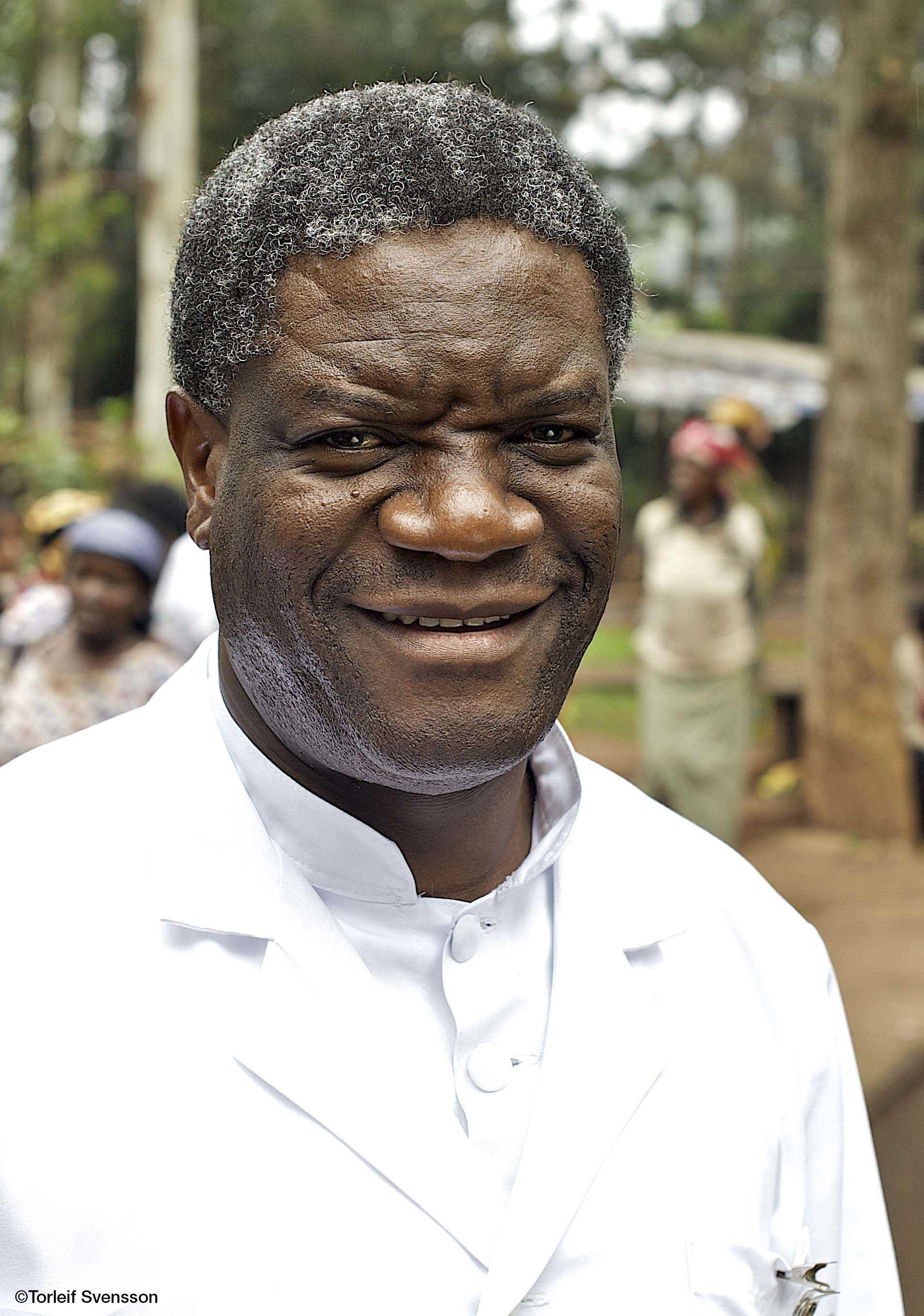Dr Denis Mukwege is a world-renowned gynecological surgeon and a global advocate for gender equality and the elimination of rape as a weapon of war.

After studying in France, he established the Panzi Hospital in Bukavu in DRC in 1999 as a clinic for gynecological and obstetric care, as he expected to primarily work on maternal health. Immediately after the opening of the hospital, Dr. Mukwege noticed the high number of women in the region who needed treatment of their wounds caused by violent sexual assault and rape. His first patient was a survivor of rape whose reproductive organs had been destroyed. Over the years Dr. Mukwege became the world's leading expert on "repairing" the internal physical damage caused by rape.
In October 2012, he was violently attacked and his family was held at gunpoint at his home in an assassination attempt. Joseph Bizimana, his friend and security guard, was killed. The attack came several weeks after a speech at the United Nations where Dr Mukwege denounced the country's decade-long conflict and called for those responsible to be brought to justice.
Dr Mukwege and his family fled to Europe for a short period of time. Despite continuous threats against him, he returned to Eastern Congo in January 2013 and resumed his work at the hospital, responding to the call from the women of Bukavu.
He received numerous international awards for his work, including the UN Human Rights Prize, the Sakharov Prize of the European Parliament, the Olof Palme Prize and the Clinton Global Citizen Award. TIME magazine listed him among the world's 100 most influential persons and the Carter Foundation named him a "citizen of the world."
Dr Mukwege is the medical director of Panzi Hospital in Bukavu and Special Advisor of the Hague-based Dr. Denis Mukwege Foundation.